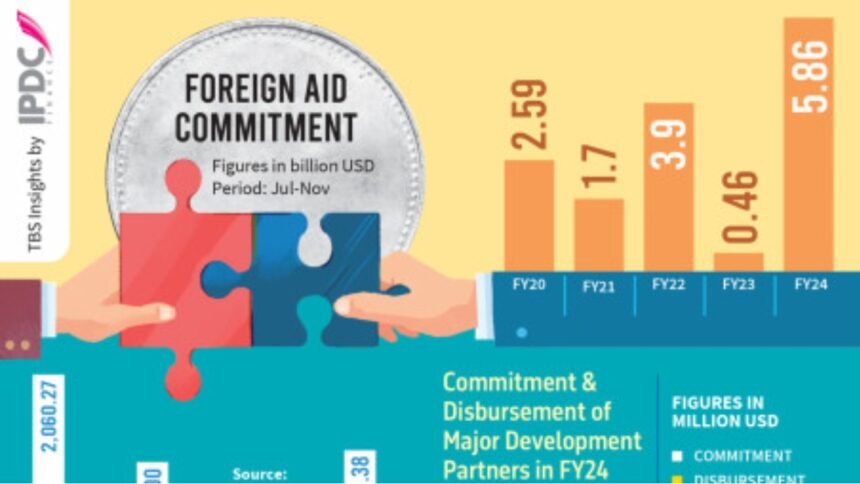In today’s interconnected world, the economic relations division plays a pivotal role in shaping a country’s international trade policies, foreign investments, and bilateral economic partnerships. This specialized branch within government and organizational structures is responsible for managing and promoting economic cooperation between nations. For an American audience keen on understanding how global economic diplomacy functions, appreciating the intricacies of the economic relations division is essential. From negotiating trade agreements to fostering investment climates, this division acts as the backbone of international economic strategy. In this blog, we will explore the multifaceted responsibilities of the economic relations division, its significance in the global economy, and why its role continues to grow in complexity and importance.
What is the Economic Relations Division?
The economic relations division is a government or institutional department dedicated to managing a country’s economic interactions with the rest of the world. Its primary purpose is to facilitate foreign trade, attract foreign direct investment (FDI), and negotiate economic treaties that benefit the nation’s development objectives. In essence, this division bridges domestic economic policies with international markets, ensuring that a country’s economic interests are effectively represented on the global stage.
Unlike traditional trade departments, the economic relations division often encompasses a broader mandate that includes not only trade but also economic diplomacy, multilateral cooperation, and strategic alliances. As global economies become more interdependent, the division’s work extends to handling complex negotiations related to tariffs, quotas, subsidies, and investment protections, thereby influencing national prosperity.
Key Functions and Responsibilities
Facilitating International Trade
One of the foremost tasks of the economic relations division is to streamline international trade. This involves negotiating bilateral and multilateral trade agreements that open new markets for domestic businesses while protecting national industries from unfair competition. Trade agreements crafted by this division can significantly reduce tariffs, simplify customs procedures, and promote smoother cross-border transactions.
For example, through free trade agreements (FTAs), countries can remove barriers to goods and services, enhancing export potential. The division’s expertise in navigating the World Trade Organization (WTO) frameworks and regional trade blocs like NAFTA (now USMCA) is crucial for securing favorable terms for the nation.
Attracting Foreign Direct Investment (FDI)
Another critical responsibility is creating an attractive environment for foreign investors. The economic relations division works closely with investment promotion agencies and regulatory bodies to present the country as a viable and secure destination for international capital. This involves advocating for policy reforms, tax incentives, and infrastructure improvements that encourage multinational corporations to establish operations domestically.
Foreign investments bring not only capital but also technology transfer, employment opportunities, and enhanced productivity. Therefore, the division plays a strategic role in aligning FDI inflows with national development goals.
Economic Diplomacy and Multilateral Cooperation
Economic diplomacy is the art of using economic tools to achieve foreign policy objectives. The economic relations division often engages with diplomatic missions and international organizations to promote economic cooperation. This includes participating in global forums, negotiating financial aid packages, and fostering partnerships in areas such as energy, technology, and sustainable development.
Multilateral cooperation, especially through organizations like the International Monetary Fund (IMF), World Bank, and United Nations, also falls within its purview. By collaborating on global economic issues, the division helps ensure stability and growth that benefit the broader international community.
The Significance of Economic Relations Division in American Context
For Americans, understanding the economic relations division offers insight into how the U.S. navigates its global economic commitments and opportunities. The U.S. government’s economic relations division, often housed within the Department of State or the U.S. Trade Representative’s office, influences key trade policies, investment flows, and international economic negotiations.
Given America’s role as a global economic leader, this division’s decisions have far-reaching consequences—impacting everything from consumer prices to job markets. Moreover, in an era of shifting geopolitical alliances and rising economic nationalism, the division’s expertise is critical in balancing protectionism with global engagement.
According to Dr. Michael Smith, a renowned economist at the Brookings Institution, “The economic relations division serves as the critical interface between domestic economic priorities and the complex realities of global markets, ensuring that economic diplomacy is both strategic and adaptive to changing global conditions.”
Challenges Faced by the Economic Relations Division
While the economic relations division plays a vital role, it must contend with several challenges in the modern global economy. First, the rapid pace of technological change demands constant adaptation. Digital trade, cybersecurity, and intellectual property rights have become prominent concerns requiring specialized knowledge and negotiation skills.
Second, geopolitical tensions and protectionist policies can hinder cooperation. For example, trade wars or sanctions impose obstacles that the division must strategically navigate to maintain beneficial economic ties. Third, balancing the interests of various domestic stakeholders—from exporters to labor unions—requires diplomatic finesse and policy acumen.
Finally, the complexity of multilateral agreements and global economic governance calls for continuous capacity building within the division to ensure effective negotiation and implementation of international commitments.
Future Outlook and Emerging Trends
Looking ahead, the economic relations division will likely expand its focus to encompass emerging areas such as sustainable trade, green investments, and digital economies. With climate change becoming a central global issue, economic diplomacy will increasingly involve negotiating environmental standards and fostering green technology exchanges.
Additionally, the rise of economic blocs and digital trade agreements will reshape traditional trade paradigms, requiring the division to innovate its strategies. The integration of data analytics and artificial intelligence in economic policy formulation may also enhance decision-making capabilities.
Given these trends, the economic relations division will remain an indispensable component of national economic strategy, particularly for countries like the United States that aspire to maintain leadership in global markets.
Conclusion
In conclusion, the economic relations division serves as a cornerstone of a country’s international economic engagement. By facilitating trade, attracting investment, and practicing economic diplomacy, this division helps countries navigate the complex web of global economic relations. For American audiences, understanding this division illuminates how U.S. economic policies are crafted and implemented on the world stage.
As the global economy evolves, the economic relations division will face new challenges and opportunities, requiring a blend of expertise, innovation, and strategic vision. Ultimately, its work not only supports economic growth but also fosters international cooperation, stability, and prosperity. For anyone interested in the dynamics of global economics, the economic relations division offers a fascinating glimpse into the mechanisms driving today’s interconnected world.






